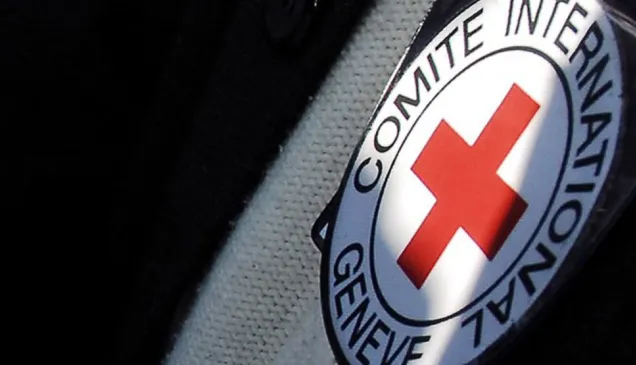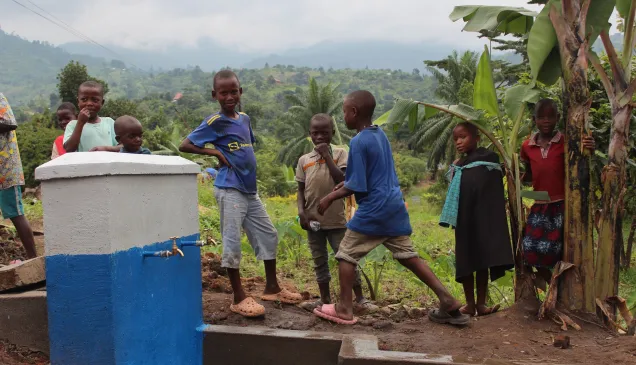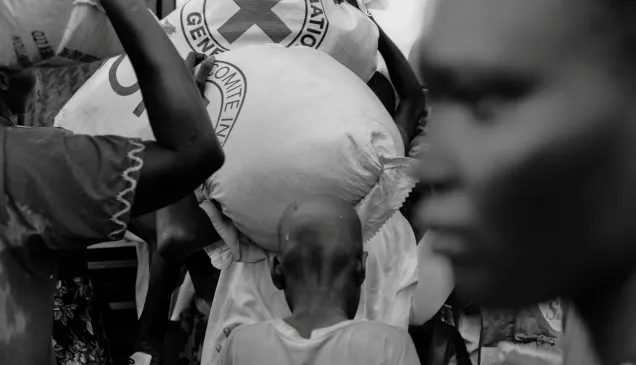United Nations, General Assembly, 70th session, Third Committee, item 65 of the agenda, statement by the ICRC, New York, November 2015.
General discussion on the Report of the United Nations High Commissioner for Refugees, questions relating to refugees, returnees and displaced persons and humanitarian questions.
Armed conflicts have always been a cause of displacement, both within affected countries and beyond their borders. When warring parties are approaching, some people take the decision to leave as a pre-emptive measure, until they feel it is safe to return. But what we witness today all too often – namely widespread violations of international humanitarian law (IHL), which give rise to large-scale and protracted displacement – should never be accepted as normal.
The ever-increasing numbers of internally displaced persons (IDPs) and refugees is a clear indication that the current international response to armed conflicts is inadequate. The International Committee of the Red Cross (ICRC) reiterates its call for much stronger diplomatic and political engagement on the part of governments to ensure better respect for IHL. Indeed, this remains a significant factor to improve the current situation: if parties to armed conflicts complied with their obligations towards civilians and civilian objects, most displacement could be prevented altogether, those already displaced would suffer far less, and many more would be able to return home.
Displacement also has both short and long-term negative effects on society as a whole. Loss of productive land and capital weakens the national economy. Departure of skilled workers decreases the provision of basic public services. Overburdened infrastructure in urban settings and increased pressure on the labour market may result in hardship for the resident population too. If there is no prospect of the situation improving, displaced people may be pushed to undertake perilous journeys to distant countries, exposing them to further hardship.
States have the primary responsibility to prevent displacement and to provide protection and assistance to IDPs within their jurisdiction. In this regard, and in the ICRC's experience, getting the response right requires a clear understanding of the specific vulnerabilities associated with each phase of displacement. It is important to bear in mind that these phases often overlap, and call for flexible interventions that also meet the needs of other parts of the population, typically host communities or those left behind. The ICRC therefore welcomes the suggestions made by the Special Rapporteur on the Human Rights of Internally Displaced Persons, Dr. Chaloka Beyani, in his latest report, aimed at ensuring that governments are in a position to monitor those affected by displacement on an ongoing basis and afford them public services on par with other segments of the population.
Governmental structures, policies and programmes mean little, unless they are matched by adequate financial and human resources. This is why development actors should engage from the outset of conflict, working alongside humanitarian actors in a spirit of complementarity. This can ensure the maintenance or development of critical infrastructure such as water and sanitation systems or hospitals, as well as continued public education, social safety nets, income opportunities and much more.
At the same time, humanitarian actors such as the ICRC cannot be part of politically driven processes if they are to preserve their ability to reach victims on all sides. Indeed, it is a major challenge today for humanitarian actors to provide protection and assistance in an impartial manner across conflict-affected regions. Issues of acceptance, access and safety of humanitarian workers still represent formidable obstacles to our ability to reach the displaced and improve their situation.
The ICRC will continue to work tirelessly for the faithful implementation of IHL and to pursue its strictly neutral, independent and impartial humanitarian action. Wherever possible, we will do so in close cooperation with National Red Cross and Red Crescent Societies, who work according to the same Fundamental Principles. The National Societies also frequently help UN humanitarian agencies deliver relief to IDPs and refugees.
But more must be done, not least in terms of political solutions. Rather than fatalistically accepting ever-growing numbers of displaced persons, we should make it our common goal to significantly reduce the global numbers of IDPs and refugees as well as the average duration of displacement and the suffering it entails.



